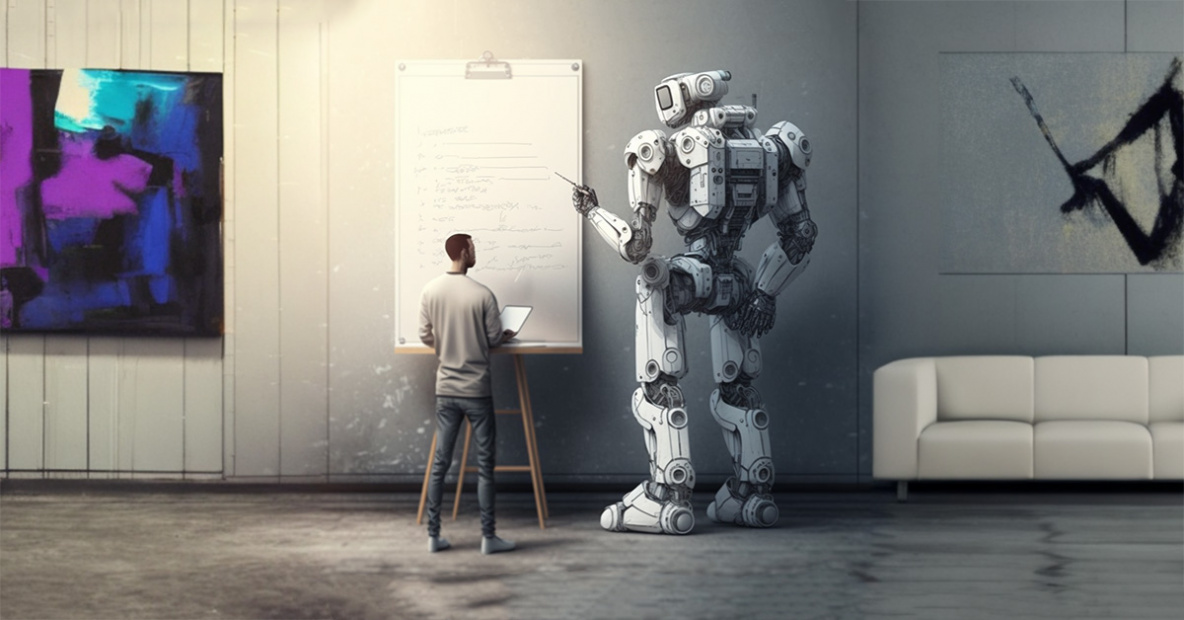
AI is disrupting the game, and it's time to adapt or be left behind. Learn how your agency can use AI to its advantage and become a disruptor rather than the disrupted, in my latest blog post: 'The agency is dead, long live the agency'.
Schumpeter’s Gale and Creative Destruction
We live in a world of constant change, driven mainly by competition. Don't judge me for that belief – I know it feels terrible for many in need of harmony. I just feel like competing, even though sometimes it brings out the worst of us, usually pushes us to our very best. Most of the time, that competition leads to steady evolution and growth within an industry or for specific products or services. And in most cases, that continued growth is at some point brutally disrupted by either one of the competitors or an outsider leveraging new technology. Adaption could mean both a reduced market share or even more success than before. The alternative to adaption mostly means irrelevancy and, at some point, bankruptcy. This process applies to markets, industries, or whole economies. It is also known as Schumpeter's gale or, more often used: creative destruction.
So, the way things go is roughly this:
- Regular competition in an industry
- Steady growth and progress
- Disruptor enters the industry
- Adaption or death
The quartz revolution and the Swiss watchmaking industry
A great real-life example of the described happened to the (Swiss) watchmaking industry, which got brutally disrupted in the 1970s by the cataclysmic arrival of quartz technology. In these cases, you're usually either the disruptor or the disrupted. Identifying the disruptor and the disrupted in this example is easy - you just have to ask how that time is called in different places. The Swiss' usually talk about the great quartz crisis, whereas the Americans and Japanese speak about the great quartz revolution. (I like watchmaking, so I'm biased, but I recommend reading about the topic as it teaches a lot about business and marketing). The watch industry is not just a great example because of what happened in the 1970s and 1980s, but also because they again are facing brutal disruption with the rise of smartwatches.
I could come up with hundreds of examples like the above because the pattern is the same. But this article shall be specifically about the disruptor that entered the digital services industry some years ago and is now showing its face to the whole world: artificial intelligence.
Artificial intelligence as a co-worker in the digital agency
ChatGPT, Dall-E, Midjourney. They're not only known by early adopters anymore. They're mainstream now.
As someone working in a digital agency, I have to ask myself what this disrupting technology means for our future. With "our" I don't mean the company I work for. I mean the whole industry. It's not provocative anymore to ask why someone should pay a copywriter for a couple of hours to produce a copy when artificial intelligence can do it in seconds, and the result is – even though not perfect – already excellent. It is not provocative anymore to ask why someone should pay a digital artist to create beautiful images when artificial intelligence can produce – again, even though not perfect – excellent results (see this example of Martini creating campaign assets with artificial intelligence: https://tinyurl.com/br9vrxu4).
Does that mean that we don't need copywriters, digital artists, and developers anymore? No. But it means we have to look differently at what AI can do. Twelve months ago, I would have said that AI is mostly there to help us to be more efficient by automating mundane tasks. However, the world is changing at immense speeds, making me rethink that. We already can use AI as a co-worker, and I certainly have been using it for inspiration, writing code snippets, and creating images that didn't need to be perfect. And yes – I also used it to create the cover image of this post.
Embracing Schumpeter’s Gale and the power of artificial intelligence
The image was worth the scroll, wasn't it? ;). At Cocomore AG we are using artificial intelligence (for example) to automatize customer service, both external and internal. We build chatbots like ChatGPT for our customers that can answer, on the one hand, consumers who want to know something about the company, need a quick recipe or other things, and on the other hand, employees that cannot find project information or don't know company policies, to name a few things.
These advancements – as said – don't mean that we won't need copywriters anymore. If we stay with that specific example, it means they will have time to focus on real creativity and outstanding outputs, boosting competition, which, as mentioned at the very beginning, I believe, brings out the best of us.
The genuinely fascinating technology that AI is doesn't mean that companies within the digital service industry are doomed. It is actually creating new opportunities for agencies to become disruptors rather than disrupted. Instead of trying to compete directly with AI, agencies should focus on using AI to their advantage by creating better results for their clients and partners and by helping them to help themselves with the power of AI. We're in the middle of Schumpeter's gale and must embrace it while leveraging the experience, creative passion, and the urge to create change that characterizes our industry.
The agency is dead, long live the agency!
Did we inspire you?
We are currently looking for a (Senior) Client Service Consultant to join our international and remote team.

